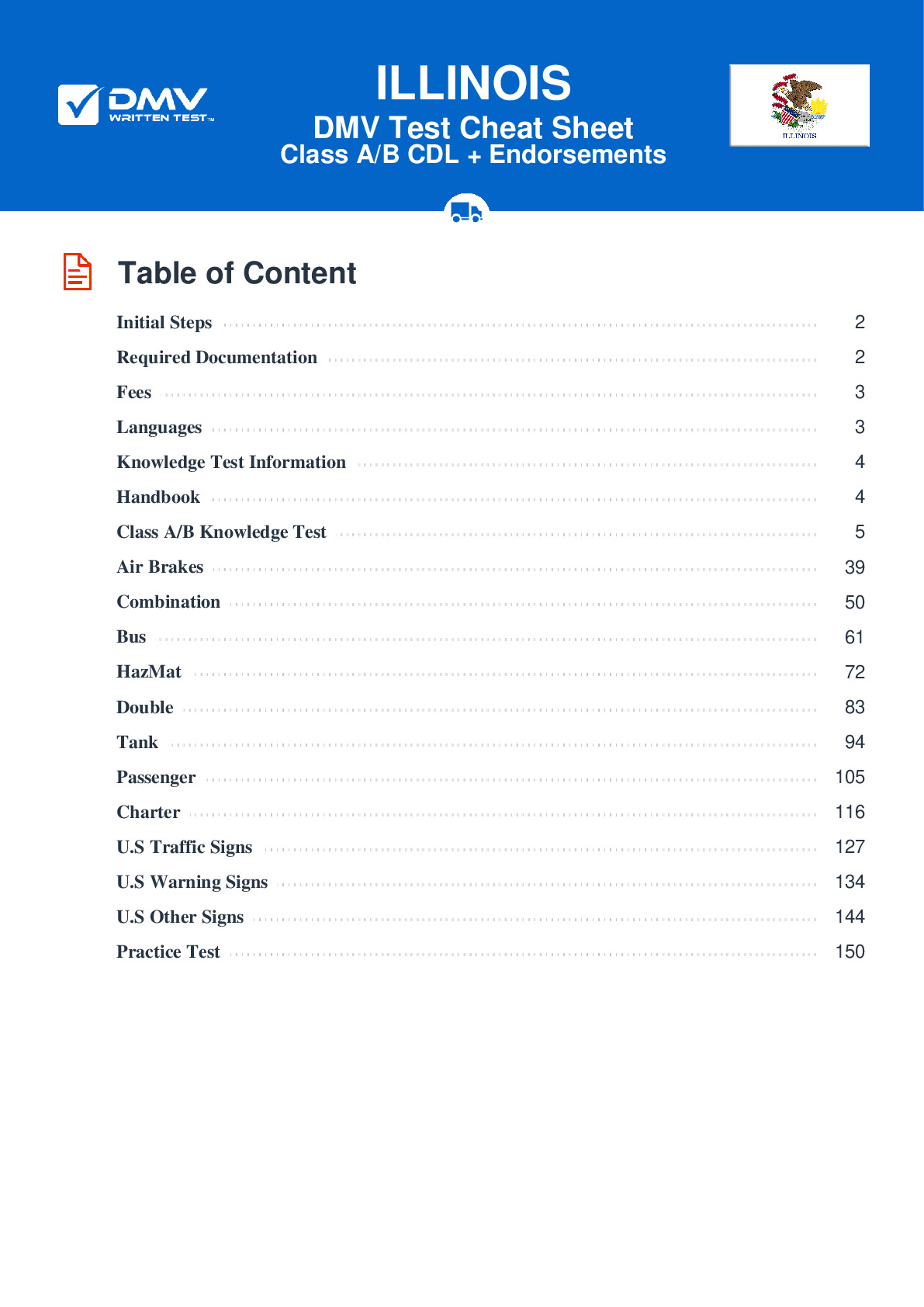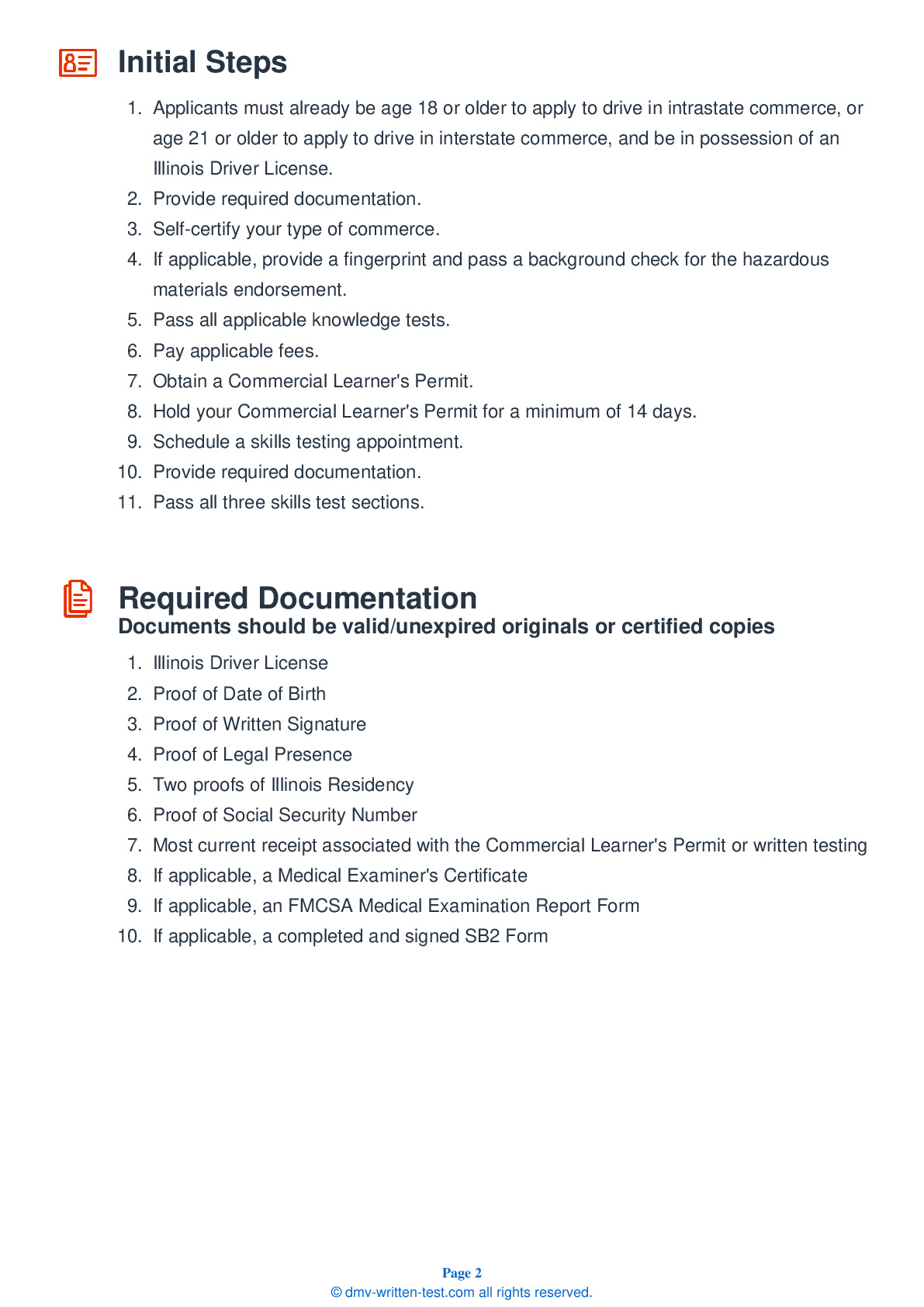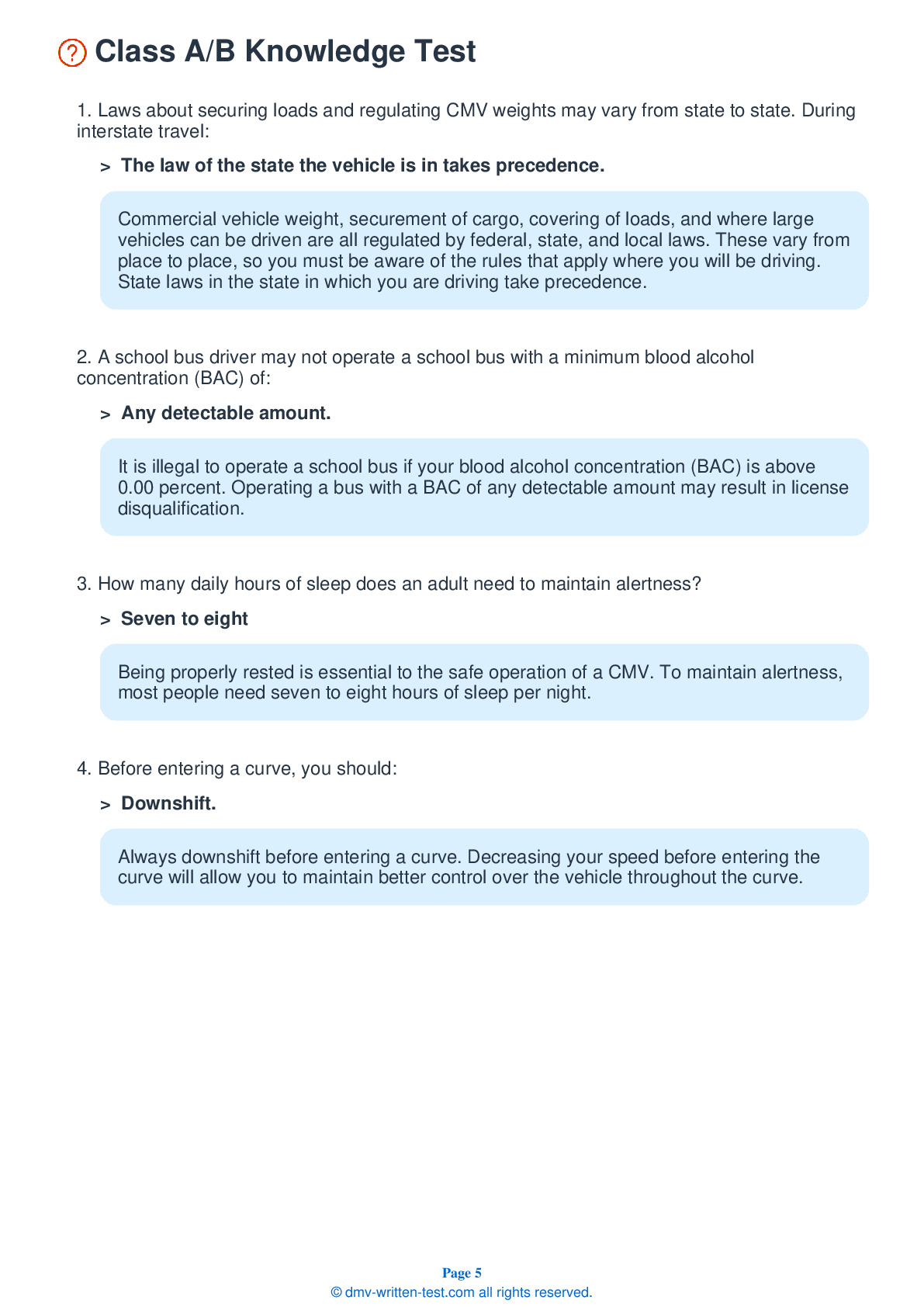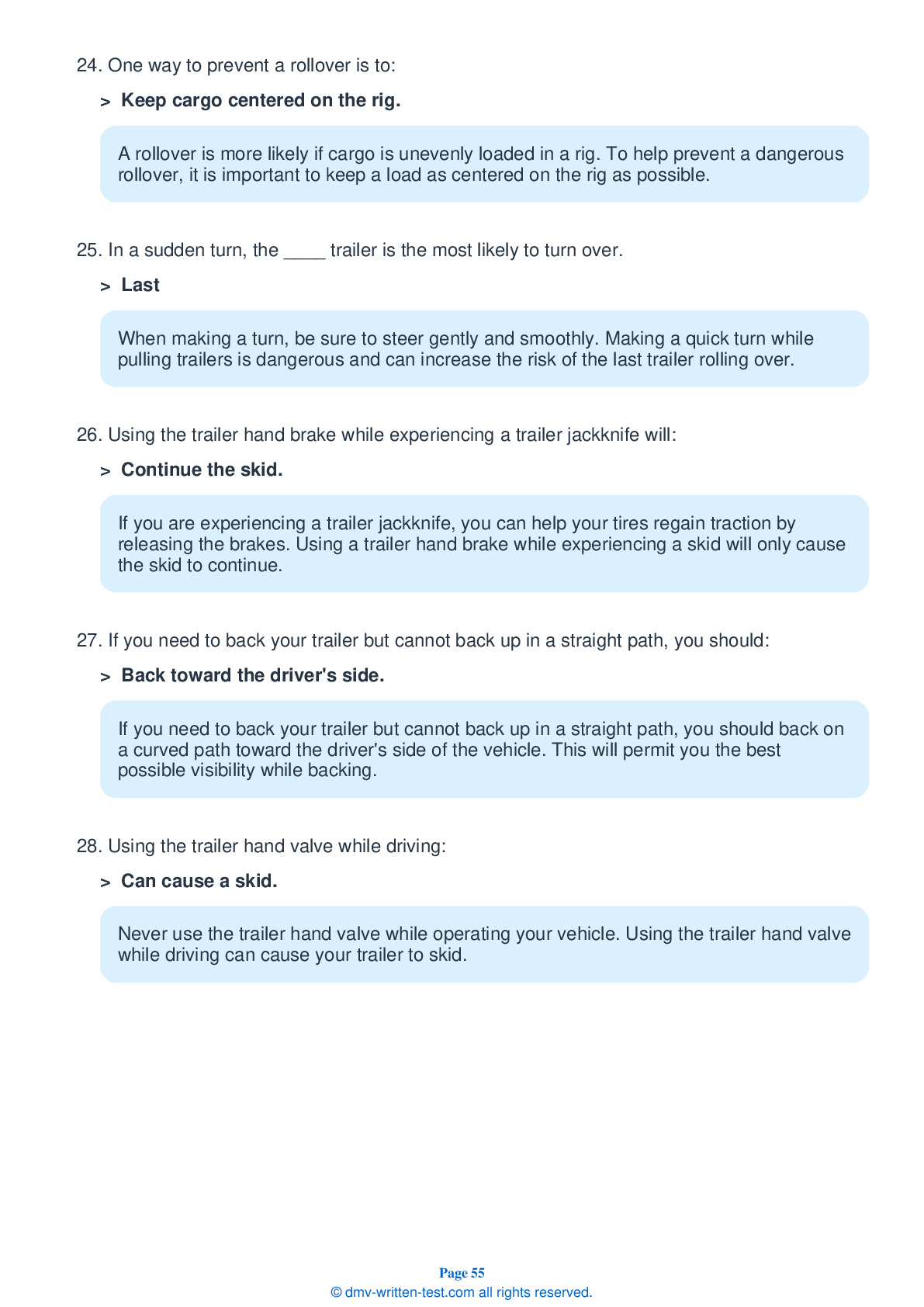Charter
This endorsement is required to operate a charter-type bus when transporting school children grades 12 and under on any type of school trip. To receive this endorsement, applicants must pass a written test. The test consists of 20 multiple choice questions. To pass, the applicant must answer at least 16 questions correctly. Test questions come from the Illinois Commercial Driver’s License Study Guide. Questions come from chapters covering: Passengers and School buses. The Charter endorsement may be used with the Class A, B or C CDL.
Number of Question
Passing Score
1. Buses must never carry:
Explanation
While some kinds of hazardous materials may be carried on a bus under certain conditions, tear gas and irritating materials must never be carried. Small arms ammunition labeled ORM-D and emergency medical supplies are permitted.
2. If a driver needs to exit a school bus to ensure all the students have boarded, the driver should:
Explanation
While students are boarding a school bus, if the driver cannot account for a student outside, they should secure the bus, take the key with them, and check around and underneath the bus.
3. While students load and unload a bus, the driver should:
Explanation
The driver of a school bus should observe students as they enter or exit the bus to ensure that they are not caught in the door or handrails. It is also important to make sure the students have moved a safe distance away from the unloading area after they have exited the bus.
4. On a bus, the driver:
Explanation
The driver's seat on a bus should be equipped with a seat belt, which should always be used.
5. Bus accidents occur most frequently:
Explanation
Bus accidents most commonly occur at intersections. Use special caution when driving where you may encounter an increased number of vehicles and pedestrians.
6. If the Anti-Lock Braking System (ABS) is malfunctioning:
Explanation
An Anti-Lock Braking System (ABS) is in place as an addition to a braking system. It intervenes to prevent brakes from locking up during hard braking. If ABS is not working, the basic braking functions on a vehicle will still remain, so the driver can continue to drive and brake normally.
7. Buses must never carry:
Explanation




